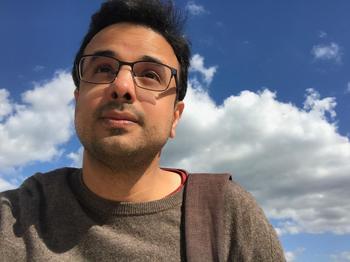Palmireno Moreira Neto
Early Career Fellow in Research Area 1: "Competing Communities"
January–June 2025
Bolaño, Oneiric Imagery and "Clandestine Surrealism" in Latin America
In a fragment attributed to Amadeo Salvatierra, a character in The Savage Detectives (Los detectives salvajes, 1998), the reader is presented with a long list of names (sometimes interspersed with brief irreverent remarks) included by the Mexican writer Manuel Maples Arce in "Directorio de Vanguardia", an article published in the first issue of the avant-garde magazine Actual (1921). The excerpt, in which there is also mention of Caborca (a magazine that emulates avant-garde periodicals in the diegetic universe of Los detectives salvajes), is a sign, among many others in the novel and in Roberto Bolaño's works, of a broad re-elaboration of the legacy of the avant-gardes. In fact, this approach dates back to the 1970s, the decade during which Bolaño participated, alongside Mario Santiago and other friends, in infrarrealismo, a movement centred in Mexico City. By evaluating how the Chilean writer reworked "the avant-garde experience", the central objective of the research project is to analyse the oneiric images in his fictional and poetic works in order to examine points of contact with modes of representation of the theme developed within the surrealist movement. Subsequently, it will be assessed whether Bolaño, through the dream image, develops a "clandestine surrealism", reformulating one of the main elements of surrealist poetics.
Palmireno Moreira Neto is a collaborating researcher at the Department of Literary Theory at the State University of Campinas, where he obtained a PhD in theory and history of literature. As a PhD student, he participated in exchange programmes with Sorbonne Nouvelle University and the School of Advanced Studies in the Social Sciences (EHESS). He holds an MA in literary theory from the Federal University of Rio de Janeiro and a BA in cinema from Fluminense Federal University. His research focuses on the comparative study of literature, cinema and the visual arts, especially in the Latin American context. During his PhD, he conducted research on Jorge Luis Borges's works and examined different aspects of the cultural experience in Argentina and Spain in the early 20th century through a comprehensive investigation of sources and an interdisciplinary approach.
